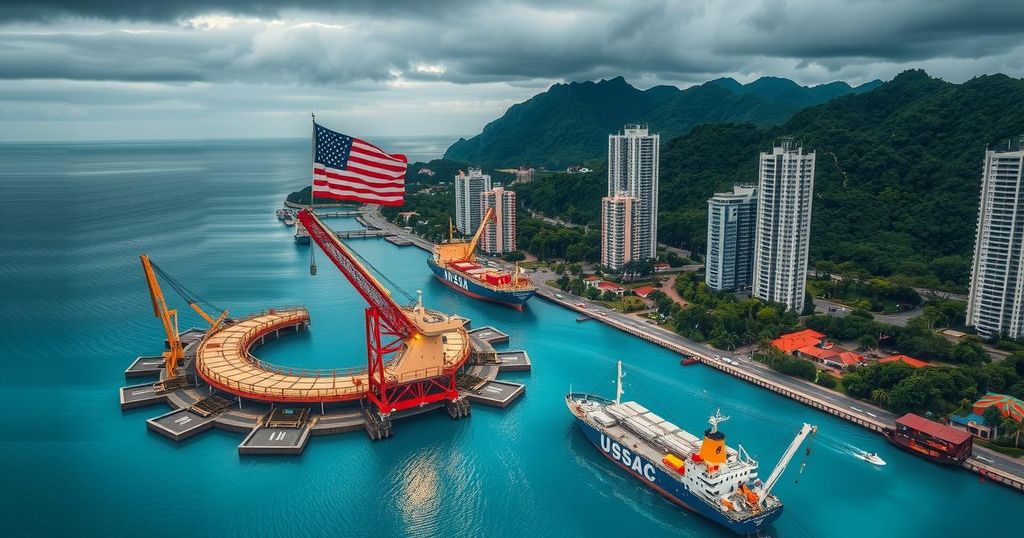Trump’s Threats on Panama Canal and Comments on Canada and Greenland

In recent statements, Donald Trump has suggested that the U.S. may reclaim the Panama Canal and has joked about Canada becoming the 51st state, highlighting concerns over foreign influence and border security. He has also reiterated interest in acquiring Greenland, though this has been consistently rejected by Danish officials.
Former President Donald Trump has reignited discussions regarding U.S. control over the Panama Canal, alleging that the fees imposed by the Panamanian government are excessively high and insinuating an increasing Chinese presence in the region. During recent speeches, Trump declared that should Panama fail to adhere to agreements concerning the canal’s management, the U.S. would demand its return. The canal, opened in 1914 and operated by the U.S. until 1999, serves as a vital shipping route, with Panama asserting its ownership as an “inalienable heritage of the Panamanian nation.” Trump’s remarks have drawn sharp responses from Panamanian officials, including President Jose Raul Mulino, who assured that the canal operates independently from foreign influences.
In addition to his Panama Canal comments, Trump has made light of the possibility of Canada becoming the 51st U.S. state during discussions regarding border security. He expressed frustration over Canada’s handling of border issues and suggested punishing tariffs if improvements were not made. This provoked a humorous reaction from Canadian Prime Minister Justin Trudeau, who warned about potential economic fallout from such measures.
Furthermore, Trump has consistently expressed interest in acquiring Greenland, a Danish territory rich in resources, citing national security as a primary concern. However, Danish officials have firmly rejected his proposals, stating that the territory is not for sale. Despite these rebuffed overtures, Trump’s rhetoric continues to highlight perceived threats from foreign governments and emphasizes U.S. sovereignty in strategic regions.
The Panama Canal, a 51-mile artificial waterway, is a crucial maritime route that links the Pacific and Atlantic Oceans, significantly reducing travel time for ships. The canal was constructed by the United States and operated under U.S. control until the end of the 20th century, when it was ceded to Panama in accordance with international agreements. Trump’s recent remarks reflect a nationalistic sentiment regarding American interests abroad, as he claims that the canal’s management under Panamanian authority has not met acceptable standards. This issue is complicated by U.S.-China relations, which Trump aims to address through stronger control over important trade routes. In parallel, Trump’s anecdotes regarding Canada signal underlying tensions about trade and border security as his administration seeks to address illegal drug trafficking and immigration. His lighthearted suggestions regarding Canada’s statehood appeared to mask serious concerns with bilateral relations. Finally, Trump’s longstanding interest in Greenland aligns with strategic military considerations as the Arctic region becomes increasingly relevant to U.S. security interests, yet Denmark’s refusal to entertain offers illustrates diplomatic challenges in these discussions.
The current discourse surrounding U.S. territorial claims, particularly concerning the Panama Canal and Greenland, reflects broader themes of nationalism and sovereignty. Trump’s statements have not only provoked responses from foreign governments but have also illuminated the ongoing dilemmas in U.S. foreign policy where economic, security, and diplomatic interests collide. As tensions regarding national borders and trade continue, the implications of these comments will be scrutinized both domestically and internationally.
Original Source: m.economictimes.com






